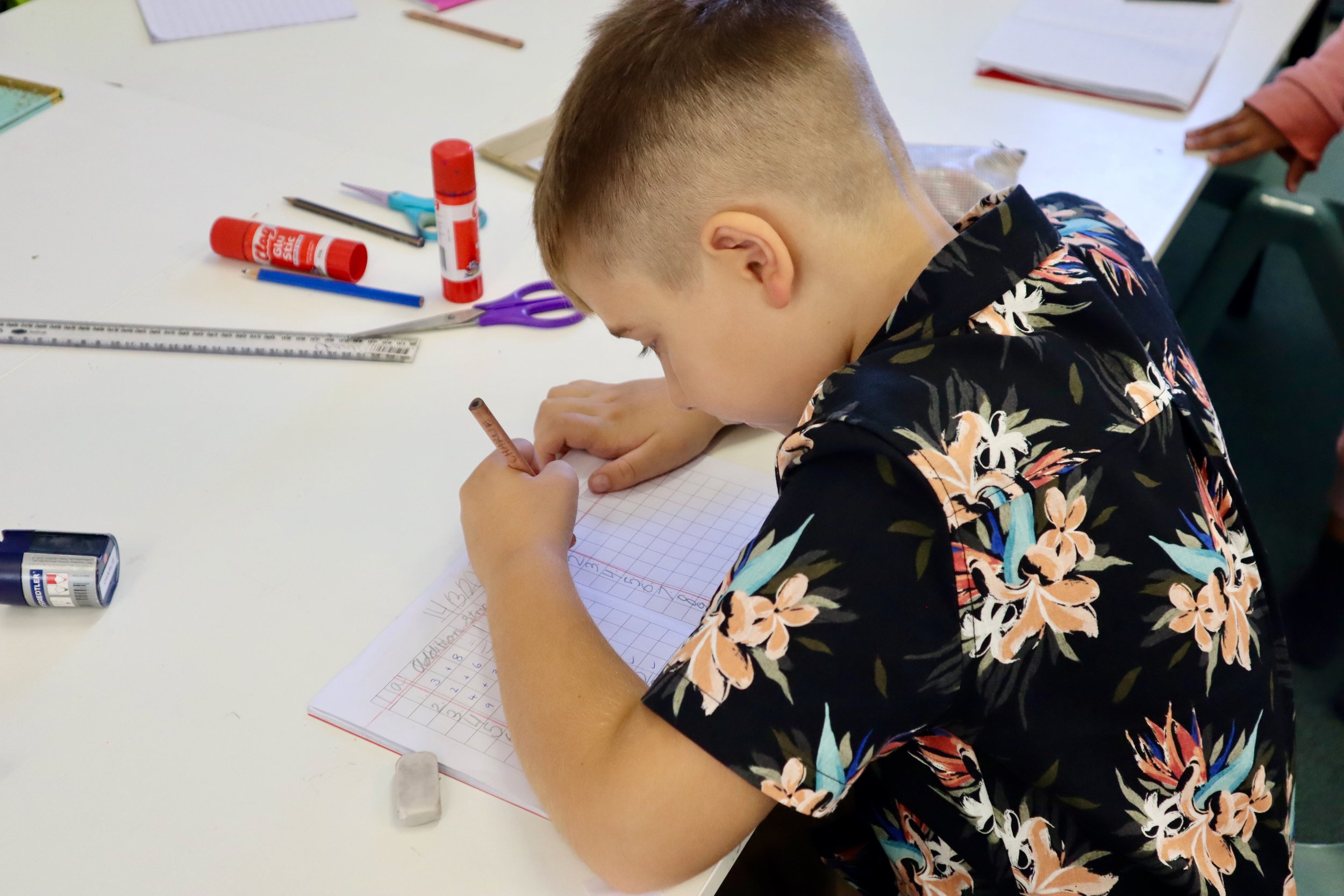
Lower Primary - KARAK
Montessori Primary Education is a natural progression from the 3-6 programme. There are a number of changes to meets the natural needs of the child. Having mastered their physical independence they now embark on their intellectual independence. 6-9 years is a period of construction.
The 6-9 year old child is identified by the ‘why’ questions and their active imaginations.
They have a decreasing need over the three years to use concrete materials in their work as they develop their abilities to reason and abstract.
This is the age of ‘dobbing’ as the children develop their moral sense and will try to work out what is acceptable behaviour and which is not. Simultaneously they will show an innate sense of compassion, justice and idealism seeing the world issues as black and white.
Socially, the children love to belong to a group. This quest for a group leads them naturally to ask questions about the universe and their place in it.
The Montessori 6-9 curriculum aims to address the children’s needs. The curriculum is holistic; it presents the ‘big picture’ through the Great Stories, stimulating the children’s imaginations and demonstrating the inter- connectedness of everything in the world.
In this cycle the curriculum is a mixture of explicit instruction in literacy and mathematics as the children develop their academic skills and opportunities to develop their capabilities in critical and creative thinking; their personal and social capabilities; their ethical and cultural understanding.
The classroom is constructed to address the children’s specific requirements. There are didactic materials, particularly in mathematics to help the children move into the abstract.
In the previous cycle, the children experienced much such as geometry, algebra and geography in a sensorial manner. Now they learn the names such as geometry, geography and algebra and start to make connections between the learning areas. They continue to develop their independence and discipline in their learning choices and outcomes.
This cycle is a construction cycle similar to the 0-3 cycle. Using explicit instruction the teacher helps the children build on the foundations of numeracy and literacy they began building in the 3-6 cycle.
These numeracy and literacy skills are given meaning in the Montessori Cosmic work – science, history, geography, zoology, botany and the arts.
The Montessori teacher is skilled in observing, monitoring and assessing each child individually to ensure the child covers all aspects of the curriculum and is progressing.
Besides the internal assessments, the school strives to prepare the children for external examinations by encouraging active participation in the Year 3 NAPLAN assessment and in internal, standardised annual assessments as a practical life skill. Examination techniques are considered an essential skill that needs to be presented and mastered in a similar manner to the practical life skills in other areas of the Montessori environment.
